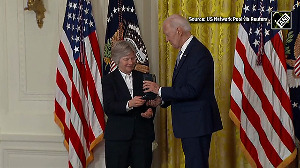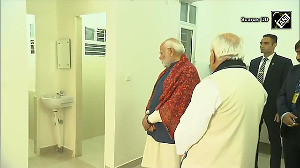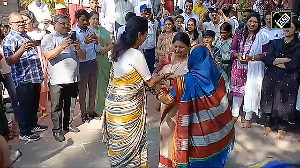 In his first media interview after taking over as Chairman of the Central Board of Excise and Customs, S Dutt Majumder said the government did not miss any opportunity by not increasing excise duty and service tax rates in the Budget. The government wants more investments to come, he tells Vrishti Beniwal. Edited excerpts:
In his first media interview after taking over as Chairman of the Central Board of Excise and Customs, S Dutt Majumder said the government did not miss any opportunity by not increasing excise duty and service tax rates in the Budget. The government wants more investments to come, he tells Vrishti Beniwal. Edited excerpts:The Budget gave the government a chance for some major tax reforms and to take a step towards GST (goods and services tax). Did the finance ministry lose a good opportunity?
In the context of our prevailing inflation and the requirement of stepping up growth, we had to think about how to make available resources for more manufacturing activity, keeping in mind our commitment to fiscal consolidation. One had to make a fine balance.
A Budget is not always about big announcements. It is also about small, incremental, things that have a cascading impact on the ultimate growth of the economy. We used all the opportunities to do whatever we thought was correct.
Was inflation the main reason to keep the service tax and excise duty rates unchanged?
I won't say the only reason. We want more investments to come. We thought if tax rates were not increased, manufacturing units would have more profits and that would be further invested in growth. Automatically, with growth, taxes go up.
The industry was expecting you to lower the threshold from Rs 1.5 crore for small businesses to align it with the proposed level of Rs 10 lakh in GST.
We deliberated on that. But we thought that suddenly doing it now, without having GST, would hurt the small-scale sectors quite a bit. So, we decided to hold on till GST comes.
Why only one per cent tax on hitherto exempted items? How did you arrive at the list of 130 items?
Some of these exempted items were processed food. They are already taxed by states under VAT and if we suddenly put them in the standard rate or even merit rate, it would have an impact on inflation.
So, we thought to tax these items at one per cent. We tried not to tax items for the aam aadmi. We did not touch basic food items like rice and pulses. But you will have to tax everything when GST comes.
But you taxed health services and diagnostics.
Indirect tax is different from direct tax, where you can catch a particular sector. We tried to make a distinction between some luxury items which go to the high end and certain non-luxury items. In the health sector, we will tax hospitals with over 25 beds which are centrally air-conditioned.
Slightly higher-end people will go there. When you are taxing health services, diagnostics also gets in. But keep in mind that we are giving 50 per cent abatement; the effective rate will be less.
The Budget has not given any timeline for introduction of GST.
It is very difficult to do so, unless there is total consensus among the 30 states and then between the 30 states and the central government. GST, unlike income tax, is a transaction-based tax and can come in any month of the year.












 © 2025 Rediff.com -
© 2025 Rediff.com -